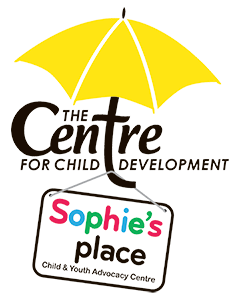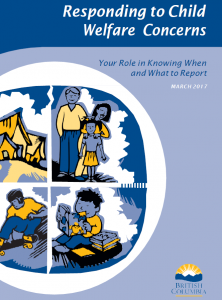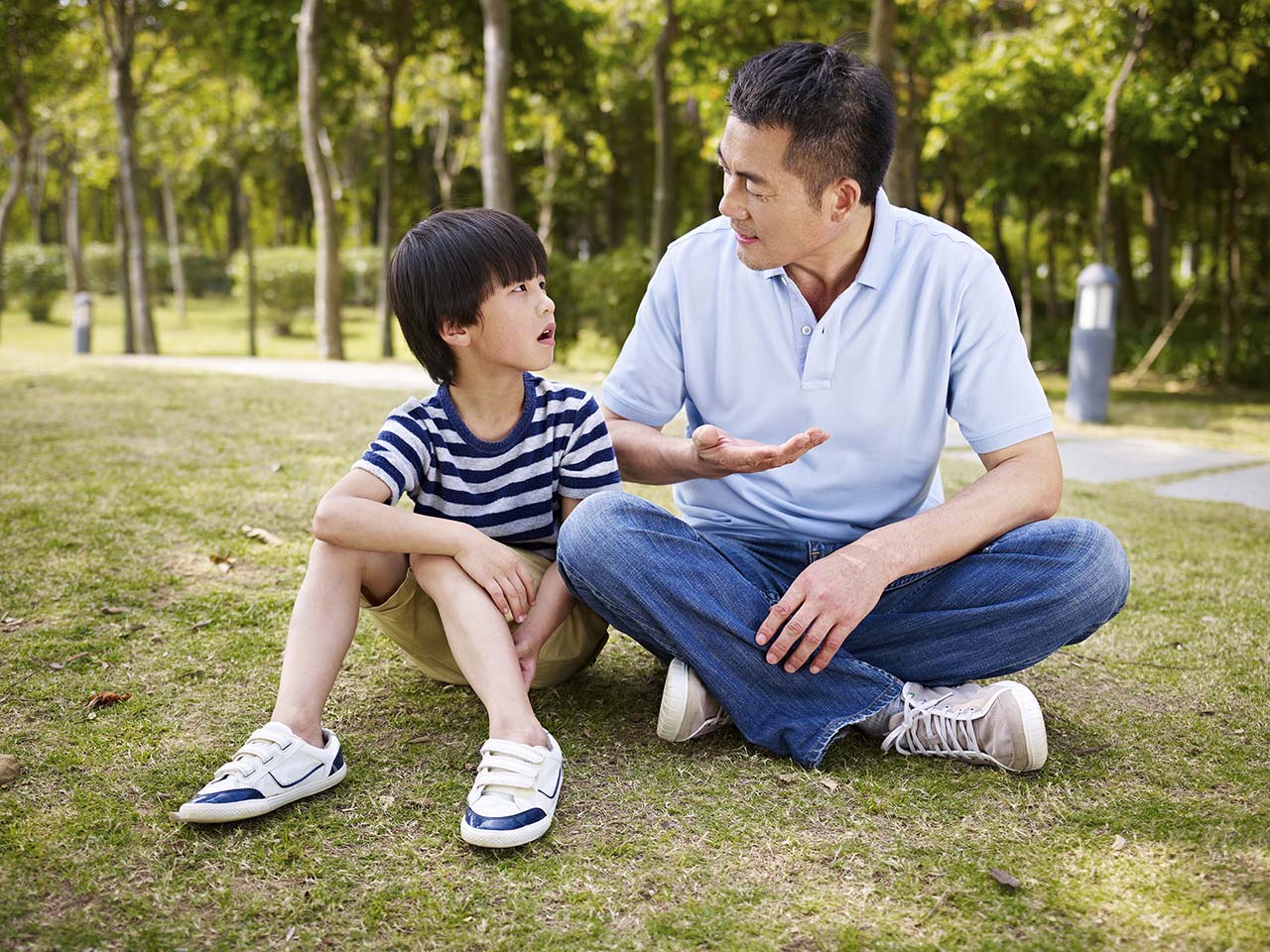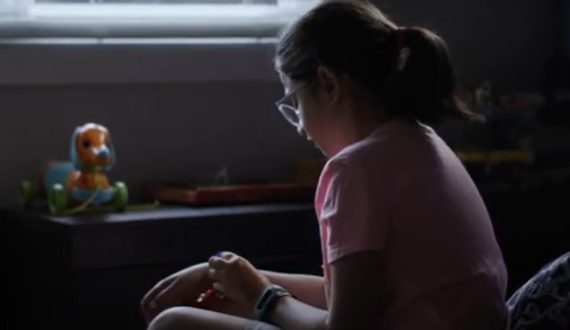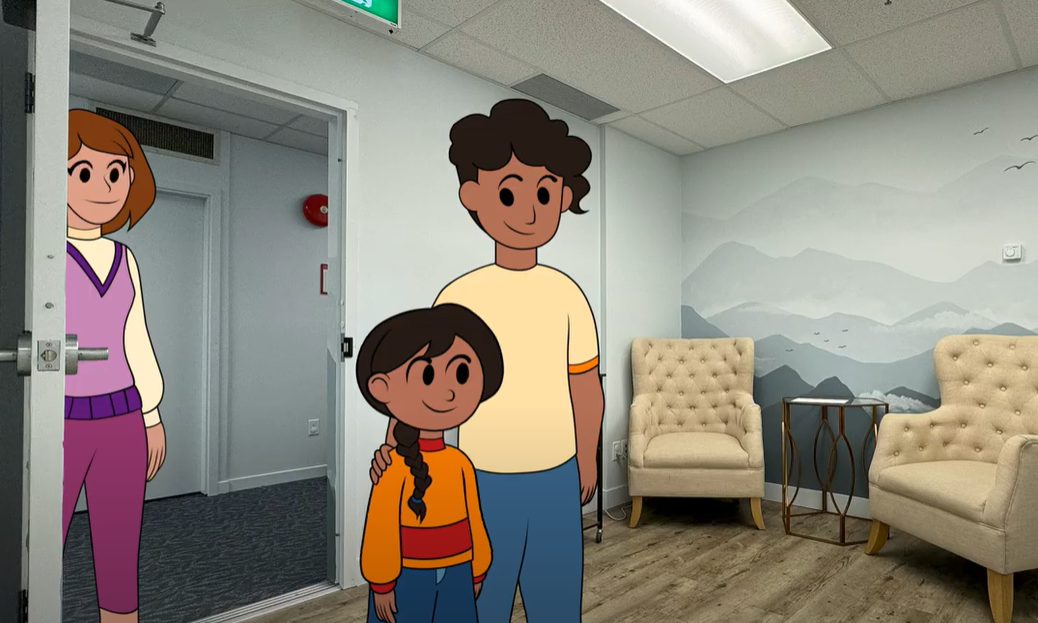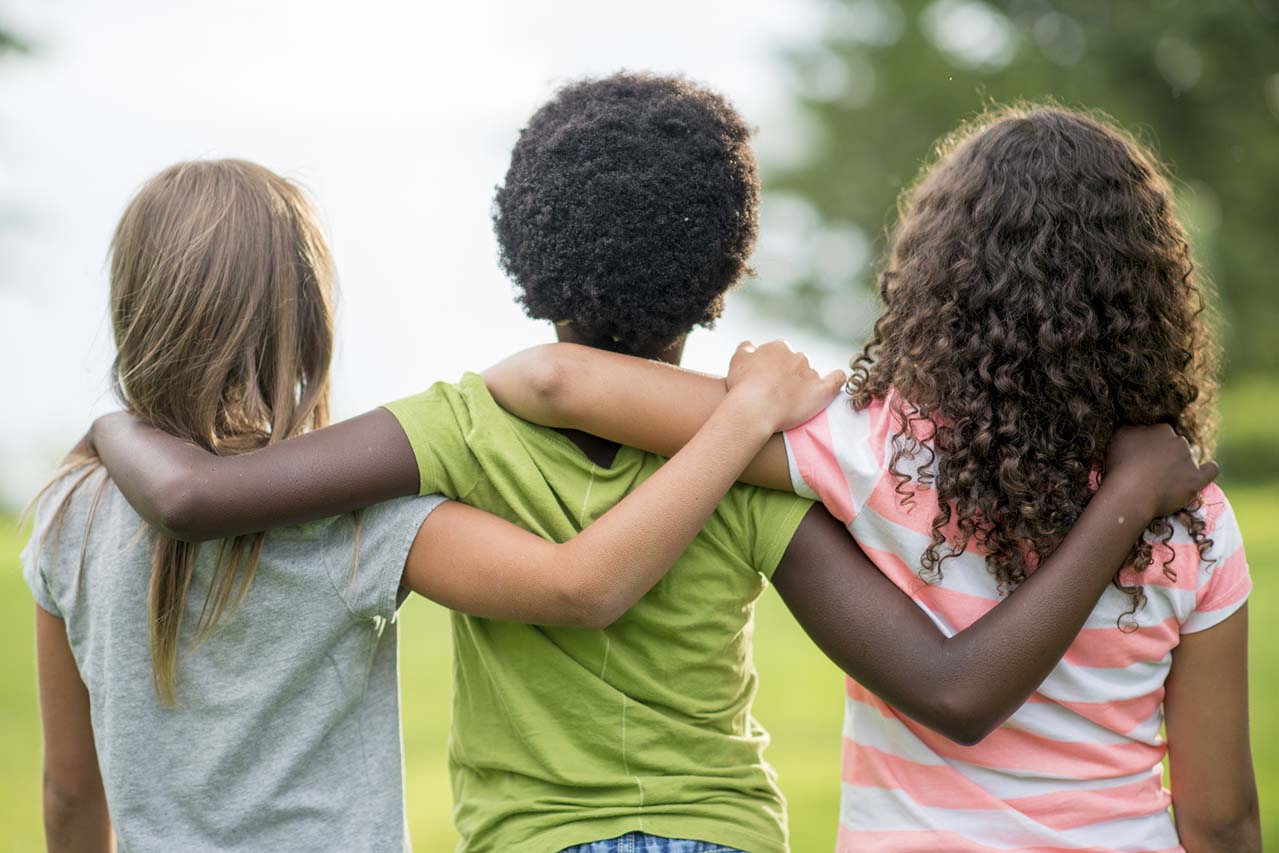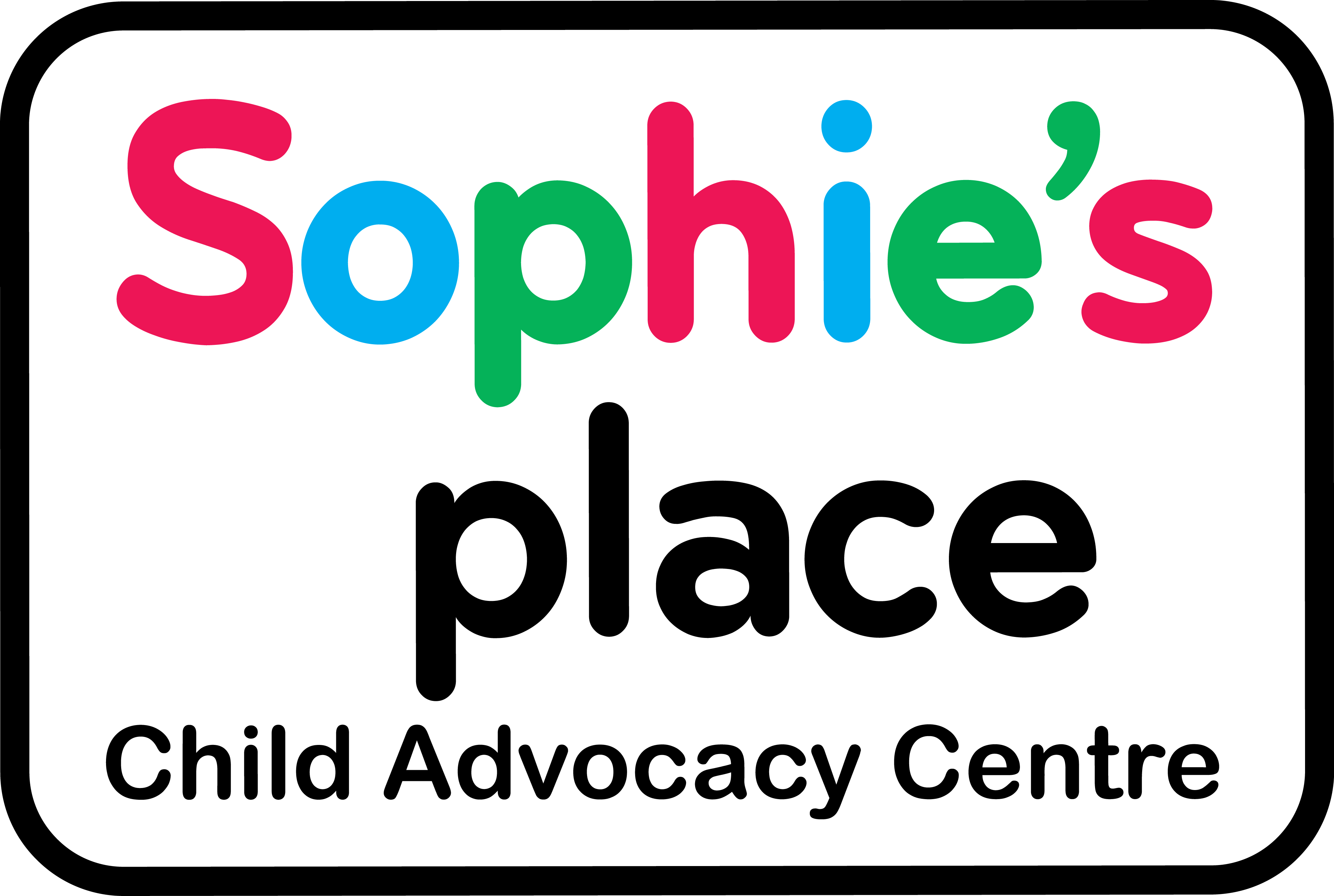
Sophie’s Place lets children and youth
share their story in a safe and welcoming space, supported and helped by a compassionate, highly integrated team
What to Look For
The signs and symptoms of child abuse are not always obvious, especially in cases of child sexual abuse. Often children have been threatened or confused by their abuser not to disclose the abuse.
The guidelines listed below are general signs and symptoms and if you notice these in your child you should ask them if anything has happened.
Printables
New Fears, Withdrawn, Depressed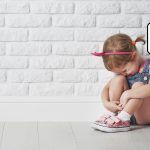
Abused children or teenagers may develop new fears of situations, places, or people. They may become excessively shy, clingy, anxious, scared or withdrawn. They may show distress or resistance to spending time with a particular adult. They may resist playing with their usual friends and withdraw from activities they previously enjoyed.
Unexplained Injuries
Visible signs physical abuse may include unexplained burns or bruises in the shape of objects. You may also hear unconvincing explanations of a child’s injuries.
Anger, Hostility
If children or teens are not allowed or able to express anger toward the abuser, they may take their anger out on others or against themselves.
Sleeping and Eating Problems
Children or teens may have problems sleeping, experience nightmares, or display sudden loss or gain in appetite. Children may regress in their development. A child might return to younger, more babyish behavior such as wetting the bed or thumb sucking.
Returning to Earlier Behaviour
Abused children may display behaviors shown at earlier ages, such as thumb-sucking, bed-wetting, fear of the dark or strangers. For some children, even loss of acquired language or memory problems may be an issue.
Problems at School
Children or teens may have difficulty concentrating which can affect school performance. A change in grades or behavior at school is not uncommon.
Lack of Personal Hygiene
Abused and neglected children or teenagers may appear uncared for. They may present as consistently dirty and have severe body odor, or they may lack sufficient clothing for weather.
Self-Destructive Acts
Children or teens may feel such guilt and shame from the abuse that they may take their feelings out by hurting themselves. This may involve hitting or cutting themselves, using drugs and/or alcohol or even a suicide attempt. As teens that were abused as children mature, it is common for issues of abuse to resurface requiring additional or new services.
Loss of Boundaries
Children or teens may be overly friendly and attached to total strangers, or they may tolerate abuse from other children. They may become excessively isolated and withdrawn, or may become overly obedient. They might excessively seek time with a specific adult who gives them extra attention, gifts, or privileges.
Risk-Taking Behaviours
Children or teenagers who are being abused may engage in high-risk activities such as using drugs or alcohol or carrying a weapon.
Inappropriate Sexual Behaviours
Children may act out sexually, in a way that’s inconsistent with children of the same age. They may show an unusual interest in other people’s or animal’s genitals, or masturbate excessively. They may try to express affection in an inappropriate way, such as fondling private parts. Teens may participate in risky sexual behavior and make inappropriate advances in public. They may have sexual knowledge beyond their level of development.
How Can You Help Protect Children?
What to Do
If a child tells you they have been abused or neglected:
Sometimes, children who are being abused or neglected will tell someone they trust. If this happens to you:
Stay calm and listen—Listen attentively and let the child tell their story. You may feel angry or shocked or scared, but you need to be calm for the child’s sake. That way, they know it is okay to talk about what happened.
Go slowly—Let the child tell you what happened in their own way and at their own pace. Gentle questions such as: “Can you tell me more about what happened?” can help.
Be supportive—let the child know that:
- they are not in trouble and have not done anything wrong
- they are very brave and did the right thing by telling you
- you are sorry this has happened to them
- you will do everything you can to help, and
- you know other people who can help them too
Get only the basic facts—You don’t need a lot of details. You just need to know what happened in general. Remember that the child may have to tell their story to a child welfare worker, and maybe the police, too. And it is hard to have to talk about abuse or neglect again and again.
Tell the child what will happen next—Let them know you will be talking to a child welfare worker, and possibly the police, who may need to come and talk to them. If the child asks questions, answer what you can. If you do not know the answer, it is okay to say, “I do not know” or “We can ask the child welfare worker about that.” Do not promise to keep it a secret.
More information is available in the Ministry of Children and Family Development’s booklet Responding to Child Welfare Concerns.
Reporting Child Abuse
If you or a child is in immediate danger please call 911
To report child abuse please call:
- 1-800-663-9122 (The Ministry of Children and Family Development)
OR
- 604-599-0502 (Police)
For general inquiries about Sophie’s Place:
Phone: 604-588-0727
Email: spinfo@the-centre.org
Sextorition, Intimate Images Shared- What to Do
- Immediately stop talking to the sextorter.
- Never pay money or send additional sexual photos. Do NOT give in to threats. In the many reports Cybertip.ca has seen, responding makes the harassment continue.
- Screenshot all the messages with the sextorter.
- Turn your phone to airplane mode to stop receiving notifications, or block the sextorter.
- Speak to a safe adult for support.
- Go to NeedHelpNow.ca for support.
- Report to Cybertip.ca. Concerns about sextortion are also forwarded to police.
- In many cases, Cybertip.ca reaches out to services like Instagram and Snapchat to intervene in the moment to help get the account of the sextorter disabled. Cybertip.ca staff work closely with the Support Services team to assist youth in crisis and help youth get through the incident.
- If your intimate image has been shared without your consent:
Sextortion is the fastest growing crime
More Information
Did you know?
- More than 60% of child abuse cases are unreported
- 1 in 3 Canadian girls and 1 in 6 Canadian boys will experience an unwanted sexual act
- 90% of abusers are known to their child victims
- Children with disabilities are 4x as likely to experience violence as their non-disabled peers
Did you know that adults in Canada are under legal obligation to report child abuse?
We’re all responsible… Everyone who has a reason to believe that a child has been, or is likely to be, neglected, physically harmed, sexually abused or sexually exploited, or needs protection, is legally responsible to report the matter to a child protection worker at the Ministry of Children and Family Development. Phone 1-800-663-9122 at any time of the day or night.
Under BC law you have a legal duty to report your concerns if you have reason to believe a child or youth (under 19 years old) has been, or is likely to be, abused or neglected. “Reason to believe” means that, based on what you have seen, or information you have, you believe a child or youth could be at risk and you are concerned about the child’s/youth’s safety and well-being.
Your immediate action can prevent further child abuse and help the family. As long as your report is made in good faith, you are not liable for any loss or damage. You can help stop child abuse.
Additional resources in our community:
Fraser Health 24/7 Crisis Line
Trained volunteers provide toll-free telephone support and crisis intervention counselling, 24 hours a day, seven days a week. You can also call for information on local services or if you just need someone to talk to.
- Call: 604-951-8855
- Toll-free: 1-877-820-7444
- Click here
START team for mental health crisis
The Short Term Assessment Response Treatment (START) team provides in-community mental health and/or substance use assessments and has three community offices in the Fraser Health region.
Focused on the mental health and/or substance use needs of the young person and their family, through a family centered approach.
Serving ages 6-18
- Call: 1-844-782-7811
- Click here
KUU-US Crisis Line
24-hour provincial aboriginal crisis line for Adults/Elders and Children/Youth.
- Call: 1-800-588-8717
- Click here
Kids Help Phone
Provides 24 hours a day 7 days a week helpline mental health. Talk to a trained counsellor anytime, even if you just need to talk.
- Call 1-800-668-6868
- Text: 686868
- Click here
Helpline for Children
Call 24 hours a day, 7 days a week if you need help and want to talk to a social worker. You do not have to give your name to talk.
Call: 604-310-1234
Need Help Now
NeedHelpNow helps teens stop the spread of sexual pictures or videos and provides support along the way. Provides guidance on the steps that can be taken to get through a very traumatizing experience.
CyberTip
Canada-wide tipline for reporting cases of online child sexual abuse and exploitation.
- Call: 1-866-658-9022
- Click here
VictimLink BC
Call, text or email victim link 24/7 for crisis support, information, and referrals for victims of all crime, including child abuse. Services available in over 150 languages.
- Call: 1-800-563-0808
- 211-victimlinkbc@uwbc.ca
- Click here
Crime Victim Assistance Program
The Crime Victim Assistance Program (CVAP) provides a range of benefits to assist victims, immediate family members of victims and certain witnesses in coping with the effects of violent crime, where same or similar benefits are not available from another source
- Call: 604-660-3888
- Click here
Child & Youth Mental Health Services
To reduce the burden of suffering resulting from children’s mental illness, child and youth mental health services are offered throughout British Columbia by the Ministry of Children and Family Development (MCFD). These services provide a wide range of community-based specialized mental health services to children and their families.
Phone: 1-800-663-9112
BC Bereavement Helpline
- Call: 604-738-9950
- Toll Free: 1-877-779-2223
- Email: contact@bcbh.ca
- Click here
Trauma Counselling
For resources regarding trauma counselling for children who have been abused, legal assistance, childcare and parenting, financial assistance, specialized services for Indigenous families and specialized services for newcomer families, please click here.
Youth Against Violence
Helpline to anonymously provide information or talk about a past or future violence incident.
- Call: 1-800-680-4264
- Text: 604-836-6381
- Click here
Forensic Nursing Service (Surrey Memorial Hospital)
Provides trauma informed forensic or medical care to all genders and ages within 7 days of intentional relationship violence or any sexual assault.
- Call: 604-953-4723
- Click here
Representative for Children and Youth
Provides individual advocacy for children, youth, and young adults who having trouble accessing government services or feel they are being treated unfairly or not being listened to.
- Call: 1-800-476-3933
- Click here
Canadian Centre for Child Protection
The Canadian Centre for Child Protection is dedicated to the personal safety of all children. One of their goals is to prevent child victimization through a number of programs, services, and resources.
Kids in the Know
The Canadian Centre for Child Protection's national safety education program. The program engages students with interactive activities to help build skills that increase their personal safety and reduce their risk of victimization online and offline.
Youth Resources Centres
Provides one-stop access for youth and families to access drop-in resource rooms for support, food, laundry, showers as well as programming for social, health, education, housing, substance use support, employment, and life skills services at 2 locations.
- Central City Youth Hub: 604-587-8100
- Newton Youth Hub: 604-592-6200
- Click here
GAB Junior
Youth drop-in group for queer youth ages 10-13; activities include crafts and games; youth workers and volunteers will always be present for support. Group for ages 14-25 is also available.
- Ages 10-13: gabjunior@qmunity.ca
- Ages 14-25: youth@qmunity.ca
- Click here
Canadian Centre for Child Protection
Resources, education, and advocacy on child protection issues in Canada.
Diversity Fact Sheet: LGBTQ+ Community
Telus WISE – Internet and Smartphone Safety
Offers best-in-class training for parents and anyone wanting to learn how to keep children and teens safe when using the Internet, as well as a variety of tips and tools on Internet and Smartphone safety and security.
BC 211
Provides referrals for support services for all of life’s challenges through phone, text, or online in 150 languages.
- Call or text: 211
- Click here
Pink Book
Resource and information guide for those living in the White Rock/Surrey area; includes quick referrals to available resources in the Lower Mainland.
If you are accessing our website regarding a child abuse emergency please call 911 immediately.
To report child abuse please call:
1-800-663-9122 (The Ministry of Children and Family Development)
OR 604-599-0502 (Police)
Sophie’s Place Child and Youth Advocacy Centre office hours are
Monday through Friday 8:30am to 4:30pm.
For all other concerns after hours please call 1-800-663-9122.
Therapy, care and support under one umbrella
We provide outpatient medical rehabilitation services to help children reach their potential.
